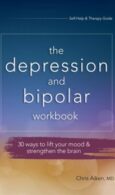Research
Participating in clinical trials as a volunteer with Bipolar disorder is a crucial way to advance scientific understanding and improve treatment options. Your participation can directly impact the development of innovative therapies and interventions.
By joining a clinical trial, you not only contribute to scientific research but also play a pivotal role in shaping the future of Bipolar disorder management.
Together, we can enhance the quality of life for individuals living with Bipolar disorder worldwide. Explore how you can make a difference today by participating in the following current research.
Optimising treatments for bipolar disorder: Participate in Clinical Research at UNSW and Black Dog Institute
Researchers at the University of New South Wales and Black Dog Institute are conducting a project looking at medications for bipolar disorder. By hearing your personal stories about your journeys through treatment, we hope to be able to improve the lives of individuals with bipolar disorder by making recommendations for better treatment decisions.
The research study is looking recruit people who meet the following criteria:
- Are 18 years of age or older.
- Are fluent speakers of English.
- Have received a diagnosis of bipolar I or bipolar II disorder in the last 1-5 years.
In addition, we are looking for participants who are taking or have previously taken at least one of the following medications:
- Carbamazepine (i.e., Tegretol, Temporol)
- Lamotrigine (i.e., Lamictal)
- Lithium (i.e., Quilonum)
- Sodium Valproate (i.e., Divalproex, Depakote, Epilim)
Participants will be asked to complete an online survey that should take 60 minutes on average. You will be asked about your treatment history, experiences with bipolar disorder, lifestyle factors, and demographic details. The survey will be completely anonymous.
If you wish to participate, you may go to the survey via the link provided below:
If you have any questions about the study, you may contact the research team via the contact details below.
Research Team Contact:
Michael Spoelma, PhD Student and Research Officer
Email: m.spoelma@unsw.edu.au
Chief Investigator:
Gordon Parker, Scientia Professor of Psychiatry
Email: g.parker@unsw.edu.au
Clinical Trial of Low Dose Psilocybin for MDD
MicroDep Clinical Trial of Low Dose Psilocybin for Major Depressive Disorder (MDD): Participate in Clinical Research at Macquarie University
What’s Involved?
Upon completing a screening process, participants commit to a 10-week intervention. This includes 6 weeks of bi-weekly drug treatments and follow-up visits at 1 week and 1 month. Throughout the trial, various assessments monitor progress. While monetary reimbursement isn’t provided, we cover travel expenses and offer meals. Your involvement contributes significantly to advancing depression treatment.
Understanding Risks
Psilocybin, a safe and non-toxic substance, isn’t linked to dependence, overdose, or long-term physiological or psychological harm. We’re investigating non-hallucinogenic doses; participants are unlikely to experience psychedelic effects. Previous trials using higher doses noted transient and mild adverse effects like anxiety and nausea. However, our study uses doses significantly lower than clinical standards, minimizing adverse events. Throughout the trial, participants receive oversight from qualified medical professionals, including a psychiatrist.
How to Participate
If you believe you meet the eligibility criteria (outlined below) and are interested in participating, please contact us via email. We’ll send you a medical history survey and require details of your regular treating GP or psychiatrist.
Who Can Participate?
Inclusion Criteria:
- Moderate major depressive disorder
- Aged 18 or above
- Fluent in English
Exclusion Criteria:
- Severe comorbid mental illness
- Use of antidepressant or antipsychotic medications within the past 3 months
- Recreational drug use within the past month
- Moderate to severe suicidal ideation within the past 12 months
- History of psychosis, bipolar disorder, stroke, or epilepsy
- Immediate family history of psychosis
For more information, please contact:
Clinical Trials Unit, Level 3, 75 Talavera Rd, Macquarie University, NSW 2109








